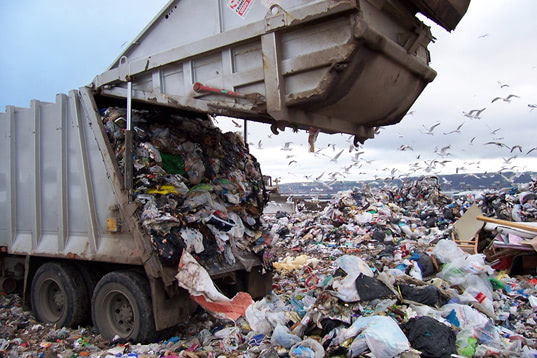Peak oil, the point when petroleum extraction is at its maximum, may have already occurred sometime in the last few years. Not only affecting whether we drive a Humvee or not, engineer Debbia Chachra reminds us that peak oil also means peak plastic.
Not limited to water bottles and cheap toys, plastic is vital to medicine, industry, agriculture, and transportation. From the soles of your shoes to the carpeting in your house, it's harder to find an object that doesn't incorporate petrochemicals than one that does. "Plastic," Chachra writes, "is so ubiquitous that it's almost invisible."
Plastic's durability means that it winds up everywhere, welcome or not: In the bellies of albatross, in giant trash vortexes in the pacific, on beaches and in our blood. Although certain microbes may eventually evolve to eat plastic, the truth is that most of our plastic waste is going to stick around for thousands of years.
This resistance to degradation, Chachra argues, is a hidden asset. Millions of tons of petroplastic are buried in landfills, waiting for the day when the cost of excavating them becomes less than the cost of squeezing the last drops oil from the ground. Although we may develop workable alternatives, petroplastic's killer combo of persistence, moldability, and sterilizability will make it valuable for centuries to come.
Chachra envisions a future where "cool, slick petroplastics will become a repository of warm nostalgia. I like to imagine the Brooklyn-hipsters-of-the-future, on their rooftops, using vodka and bitter almond oil to make artisanal polyethylene."
Via Warren Ellis.

Share your thoughts and join the technology debate!
Be the first to comment